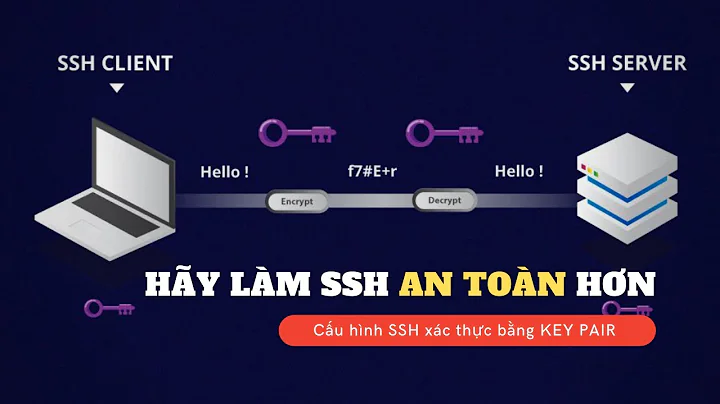How to mount automatically sshfs when RSA authentication is not an option?
Solution 1
This worked for me:
echo $mypassword | sshfs -o UserKnownHostsFile=/dev/null -o StrictHostKeyChecking=no user@host mountpoint -o workaround=rename -o password_stdin
Solution 2
You can use the sshpass command to login via password authentication, but non-interactively:
echo "MyPassword" > passwordfile
chmod 600 passwordfile
sshpass -f passwordfile [ssh parameters]
Using this technique is not recommended, as it causes a number of security issues. From sshpass man page:
It is close to impossible to securely store the password, and users of sshpass should consider whether ssh's public key authentication provides the same end-user experience, while involving less hassle and being more secure.
You can then use the ssh_command option of sshfs to use sshpass instead of plain ssh
sshfs user@host mountpoint -o ssh_command='sshpass -f passwordfile ssh'
Related videos on Youtube
ps-aux
Updated on September 18, 2022Comments
-
 ps-aux almost 2 years
ps-aux almost 2 yearsI would like to mount a file system on a remote machine automatically at each Linux startup. However I always need to use password authentication because I cannot
use ssh-copy-id. How do I make this to be automatic without manual interaction?-
derobert over 9 yearsDoes "can't use
ssh-copy-id" mean you can't change anything on the server? Or just you can't use a~/.ssh/authorized_keysfile? (There are more than two authentication options.)
-
-
Ilia over 4 yearsUsing the last example with
ssh_commandoption is the only command that works when connecting to FreeBSD.




